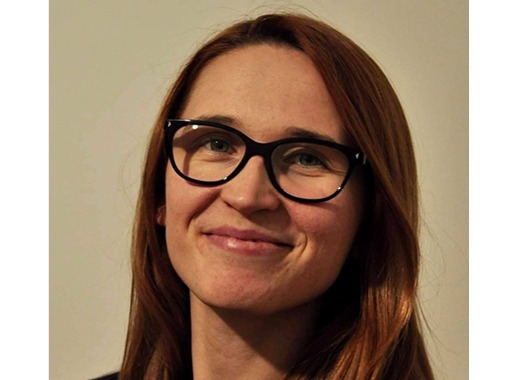Doctoral defence in Bioengineering - Adrianna Milewska

Aðalbygging
The Aula
Live stream: https://livestream.com/hi/doktorsvornadriannamilewska
Ph.D. student: Adrianna Milewska
Dissertation title: Development of SERS substrates for detecting differentiation in mesenchymal stromal cells
Opponents: Dr. Laura Fabris, Associate Professor at Rutgers University, New Jersey, United States
Dr. Mads Bergholt, Lecturer at King's College London, UK
Advisors: Dr. Kristján Leósson, Technical Director, DTE ehf
Dr. Ólafur E. Sigurjónsson, Professor at Reykjavik University and director of research and development and stem cell processing at the Icelandic Blood Bank
Dr. Unnar B. Arnalds, Professor at the Faculty of Physical Sciences, University of Iceland
Faculty supervisor: Dr. Sigurður Brynjólfsson, Professor at the Faculty of Industrial Engineering, Mechanical Engineering and Computer Science
Chair of Ceremony: Dr. Rúnar Unnþórsson, Professor and Head of the Faculty of Industrial Engineering, Mechanical Engineering and Computer Science, University of Iceland
Abstract:
Identification of the primary cells, such as mesenchymal stromal cells, at the molecular level is vital for better understanding of their differentiation pathways. Surface-enhanced Raman scattering has a potential to become a non-invasive screening method for characterization of biomolecules, including their dynamic changes in conformation, distribution, and interactions. However, the lack of appropriate SERS substrates, cell monitoring protocols and difficulties in translation of the SERS spectral information into widely understandable data are a reason why SERS is not yet extensively used. This thesis focuses on the development of a surface-enhanced Raman scattering platform for continuous screening of cells and their processes. This platform was used specifically for studying osteogenic differentiation of mesenchymal stromal cells (MSCs) determined from changes occurring on the cell membranes during differentiation. SERS substrates were fabricated on glass supports by repeated thin gold films deposition and thermal annealing, which resulted in wide diversity of gold nanoisland sizes and homogeneous distribution of “hot spots”. In order to ensure high and uniform signal enhancement across large areas, numerical simulations and experimental assessments of enhancement factors were performed, indicating the enhancement factors of the order of 106 are uniformly distributed across the substrate’s area. Moreover, the SERS substrate’s biocompatibility was confirmed by viability assays and immunofluorescence staining, clearly verified that the presence of the SERS substrates do not hamper cell propagation. The applicability for long-term cell proliferation and SERS screening was demonstrated by culturing MSCs and recording spectra of cellular membrane at different timepoints during differentiation, simultaneously confirming the osteogenic phenotype with standard methods. The results indicate that SERS culturing platform can be used to investigate the composition of cell membranes during osteogenic differentiation, combining imaging of cells with spectroscopic detection of molecular species and chemical events occurring on the cellular membrane adjacent to the surface of the SERS substrate, without disturbing the cells. In addition, SERS substrates were used for live-cell imaging of a fibroblast cell line, further indicating that the SERS substrates and optical excitation conditions do not adversely affect live cells, paving a way towards continuous label-free screening of osteogenic differentiation of live mesenchymal stromal cells.
About the doctoral candidate:
Adrianna Milewska was born in Gdańsk, Poland in 1992. She completed an Eng. degree in Biomedical Engineering in 2015 at Gdańsk University of Technology, followed by M.Sc. Eng. degree in Biomedical Engineering completed in 2016 at Gdańsk University of Technology in collaboration with Reykjavik University and Icelandic Blood Bank. Since 2017, she worked as a Project Manager in Innovation Center Iceland before starting a PhD in Bioengineering at the University of Iceland in 2018. Currently she is working as a Process Analytical Technology (PAT) Senior Scientist in a biopharmaceutical company Alvotech in Reykjavik.
Adrianna Milewska



